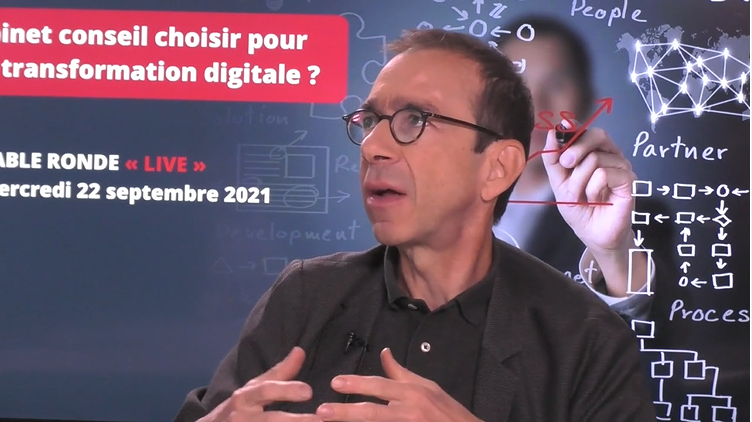Which consulting firm to choose for a successful digital transformation in Supply Chain? This is the theme of the round table in which Olivier Dubouis, Partner and CEO of DIAGMA, took part on the Supply Chain Village platform. As a project accelerator, DIAGMA offers to bring its expert skills in project management and its experience in the implementation of solutions to help you find the mix of technologies adapted to your objectives and your teams in order to to make your Supply Chain more responsive and more efficient.

How to succeed in your digital transformation?
Your Supply Chain is faced with many hazards to which you must react quickly.
You need to maintain your quality of services and control your costs in a difficult context: rising prices of raw materials, energy, transport costs, shortages, management of returns, reduction of waste and waste. .
You must transform to meet the new needs of your evolving markets: omnichannel commerce, new consumer trends (local products, organic, quick commerce, use vs. possession), shorter delivery times to end customers, increased competition …
So many good reasons to review your Supply Chain and launch projects to redesign your information systems to improve performance and responsiveness.
An acceleration of digital transformation
Digital transformation projects are not new. They started around thirty years ago with the implementation of the first information systems on the market, which would later be called ERP (Enterprise Resource Planning). “The concept of transformation is quite old. What is changing is the multiplicity of technologies and the speed of evolution of technologies, organizations and customer expectations which means that everything is accelerating”, explains Olivier Dubouis, Director General and Partner of DIAGMA. This is one of the reasons why digital transformation projects are no longer carried out in the same way as when they started. Thus, agile methods make it possible to achieve results more quickly while avoiding the tunnel effect. But above all, digital transformation projects are real business transformation projects.
Cross-functional projects that involve multiple functions
Often led, or even initiated, by General Managers, digital transformation projects involve many functions of the company, in addition to the Supply Chain Department. “Supply Chain projects often will draw more transversely within the company. For example, at Decathlon, we worked on the omnichannel Supply Chain. This led us to reflect on the proposed service offer. and in particular, how the Supply Chain can offer a range of services that will or will not become a competitive advantage. And how far this transforms, including the role of people at points of sale. company and on the transformation of its business “, illustrates Olivier Dubouis.
Real business transformation projects
In addition to being cross-functional, digital transformation projects are generally real business transformation projects. “It is a project which often starts from a vision of the company: what must it offer to meet, or even anticipate, the needs of the market. And very quickly, we will want to decline this vision and go through various technologies, which can also have very different levels of maturity “, continues Olivier Dubouis. Hence the need to arbitrate between these various technologies and find those which are most suited to each company, both in terms of response to needs, as well as culture and maturity.
Contributions from consulting firms
Compared to the multiplicity of technologies and software solutions, which induce great complexity, a consulting firm can bring its knowledge of the market through the monitoring it operates and the implementations it has already carried out in order to guide companies towards the most suitable choice, which is often a mix of several solutions.
More broadly, a Supply Chain expert consulting firm brings a critical perspective, technical expertise, resources, skills complementary to those of the company (project management, communication to bring together the various functions within the company …).
Consultant: a project accelerator
It can also help make the project more efficient. “A consultant can be an accelerator by the nature of his engagement in the mission. He himself has an objective, a timing, a budget … and he will make his resources available to prepare for decisions on a longer horizon. short “, adds Olivier Dubouis. This can also mean taking sides: “I think that a consultant is expected to provide a vision and a recommendation. A consultant does not only do mideutics, he gets wet” said the CEO of DIAGMA . The decision is of course ultimately the responsibility of the customer.
Confidence makes the difference
As part of a call for tenders to choose a consulting firm to operate its digital transformation, its notoriety, its areas of intervention and its expertise contribute to its inclusion in the list of firms consulted by the ‘business. Then, his ability to understand and reformulate the client’s problematic, his methodological approach, his deliverables, his project team and of course, his budget envelope will make that he will be preselected or not.
But the final choice criteria are often more of a “human” order. Some speak of “fit” or “feeling”. For Olivier Dubouis, it is above all a question of trust: “For me the key word is trust. I call on a consultant with whom I am confident of being able to carry out the project that I have in mind. head”.
So now, thank you for your trust and do not hesitate to contact us for your digital transformation projects!
FOR MORE INFORMATION CONTACT US
Other content attesting to DIAGMA’s skills in terms of choice of solution and their successful implementation: